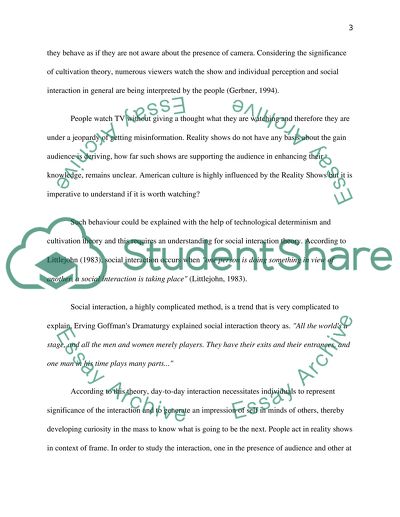Cite this document
(“V Reality TV and Goffman Essay Example | Topics and Well Written Essays - 1500 words”, n.d.)
Retrieved from https://studentshare.org/sociology/1454244-v-reality-tv-and-goffman
Retrieved from https://studentshare.org/sociology/1454244-v-reality-tv-and-goffman
(V Reality TV and Goffman Essay Example | Topics and Well Written Essays - 1500 Words)
https://studentshare.org/sociology/1454244-v-reality-tv-and-goffman.
https://studentshare.org/sociology/1454244-v-reality-tv-and-goffman.
“V Reality TV and Goffman Essay Example | Topics and Well Written Essays - 1500 Words”, n.d. https://studentshare.org/sociology/1454244-v-reality-tv-and-goffman.


